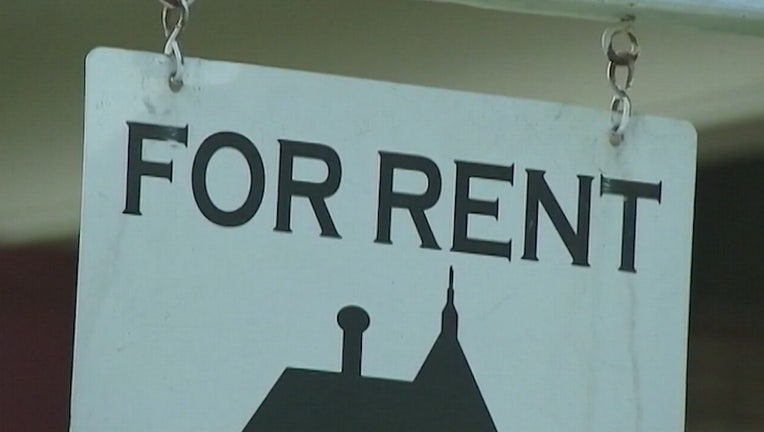San Mateo County supervisors approve grant program for small landlords

SAN MATEO COUNTY, Calif. - A program to assist small landlords financially impacted by the COVID-19 pandemic was approved Tuesday by San Mateo County supervisors.
Supervisors voted unanimously to approve the Small Residential Rental Property Owner Assistance program, after allocating $2 million of federal funds towards its establishment on Aug. 4. Federal funding falls under the Coronavirus Aid, Relief and Economic Security (CARES) Act.
President of the Board Warren Slocum said in August that the board is trying to create a "win-win" outcome.
"We're trying to create a situation that benefits small landlords
as well as people and families so that they can stay in their homes and not end up homeless," Slocum said.
Grants would cover 80 percent of rent losses that small landlords
would have incurred from April 1 through Aug. 31, during the countywide eviction moratorium. In exchange for the grant, the property owner must discharge the renter's back rent.
To qualify, applicants must live in and lease units in the county.
They must also rely on rent as a primary source of income, and have an annual gross rental income of less than $400,000 in 2018 and 2019.
Rhovy Lyn Antonio, vice president of public affairs of the
California Apartment Association (CAA), said at Tuesday's meeting that it was a "much needed" program as the pandemic has hit everyone, including small property owners.
Originally, only property owners owning 10 or fewer units would
have been eligible to apply.
However, Antonio requested that the 10-unit eligibility criteria
be turned into a 10-unit maximum cap, which would allow more landlords to apply, but would still limit grant assistance to 10 units.
"Moving it to a 10-unit maximum per application is still targeting
mom and pop landlords but allowing more opportunities for small landlords who might have a 12-unit building to apply," Antonio said.
"If more owners are allowed to apply, more tenants' unpaid rent can be absolved through this grant process."
The supervisors agreed to amend the 10-unit eligibility criteria
to a 10-unit cap on the number of units for which a property owner may receive assistance.
The grants will be administered through the county's Community
Fund, in partnership with the CAA, the San Mateo County Association of Realtors, and core service agencies. Applications will be open starting Oct. 1 and will be available online.
Public commenters during the meeting complimented the program and thanked the supervisors for their support.
Ann Marquart, executive director of Project Sentinel in Santa
Clara, supported the program, saying that they have had hundreds of calls, largely from property owners. Project Sentinel's goal is to work with tenants, property owners and mortgage holders to determine how rent can be effectively paid.
The grant program accompanies other assistance funds that the
board has approved, including an emergency financial assistance program for renters, administered primarily through Samaritan House, a local nonprofit organization.
Through the program, the county provided $5.2 million in
assistance to applicants between April 1 and Sept. 3, according to Human Services Manager Jessica Silverberg. They approved 2,446 of the 3,924 applications received thus far. There is $7.1 million in funding available, including $2 million in CARES Act funds that the county board allocated on Aug. 4.
However, earlier in the meeting, some residents requested further
protections for renters in addition to statewide Assembly Bill 3088, known as the COVID-19 Tenant Relief Act of 2020.
The bill, signed by Gov. Gavin Newsom on Aug. 31, protects renters from being evicted for non-payment of rent due to COVID-19-related hardship. It also includes foreclosure protections for small residential rental property owners.
Still, residents worried that evictions for other reasons may
still proceed.
Members of el Comite de Vecinos de East Palo Alto, a local tenant
rights group, urged the board to consider adopting a stronger moratorium that would prevent evictions in all cases. This was not an item on the agenda for Tuesday's meeting.
Katie Goetz, a San Mateo County resident and parent of second- and fourth-grade children, said that protections are needed, especially since children are learning from home.
"There are some things you need to be able to do in order to learn
from home, and one of those big ones is to remain at home. I cannot imagine doing this work under threat of eviction and the possibility of losing my housing," Goetz said. "Please put the strongest eviction protections in place that you can, going above and beyond what the state of California requires."

